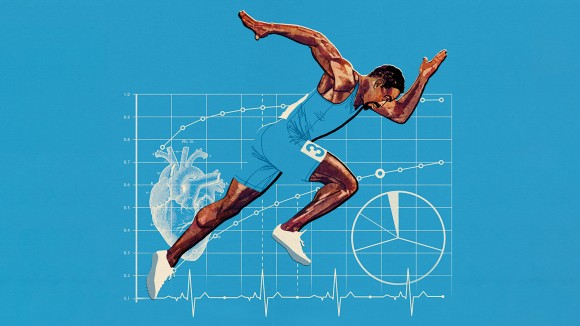
Are you ready to explore the fascinating world of sports and its profound cultural impact?
In this article, we delve into the deep-rooted connections between stadiums and communities, unravelling the evolution of sports culture.
Prepare to be captivated by the emotional bond that exists between fans and their beloved teams, as well as the symbolism embedded in stadium architecture.
Join us on a journey through sports rituals and traditions, where stadiums transform into sacred temples that unite people from all walks of life.
Key Takeaways
- Stadiums play a crucial role in building community and fostering camaraderie among sports fans.
- The emotional connection between fans and teams goes beyond wins and losses, with fan loyalty and team identity playing a significant role.
- Stadiums are not just physical structures but also cultural symbols that represent the values and traditions of a team.
- Sports rituals and traditions in stadiums have deep cultural significance, bringing fans together and strengthening cultural connections.
The Evolution of Sports Culture
You've probably noticed how sports culture has changed over the years. Sports fandom, once confined to local communities and small gatherings, has grown into a global phenomenon that unites people across borders and cultures. This transformation can largely be attributed to the impact of technology.
With the advent of television and now the internet, fans no longer have to physically attend games to experience the thrill of victory or the agony of defeat. They can watch matches from the comfort of their homes or connect with fellow enthusiasts through online forums and social media platforms.
The rise of technology has not only expanded access to sports but also revolutionized fan engagement. From fantasy leagues to eSports tournaments, technology has created new avenues for fans to interact with their favorite teams and athletes. It has allowed them to delve deeper into statistics, analyze gameplay strategies, and even participate in virtual competitions themselves.
Sports culture today is not just about spectating; it's about actively participating in an immersive experience that extends beyond the confines of a stadium. Thanks to technology, sports have become more than just games – they are a way for individuals around the world to forge deep cultural connections based on shared passions and experiences.
Start by thinking about how stadiums bring people together and create a sense of belonging. Sports teams play a significant role in building community, and stadiums serve as the epicenter for this connection. They become more than just venues; they transform into sacred spaces where fans unite to support their favorite teams.

The role of sports teams: These organizations act as catalysts for camaraderie and solidarity among individuals who may otherwise have little in common. The shared passion for the team creates a bond that transcends societal barriers.
Stadium financing: While some may argue that stadium funding diverts resources from other important areas, it is essential to recognize the economic benefits they bring. Stadiums attract visitors, boost local businesses, and generate revenue through ticket sales and merchandise.
Furthermore, stadiums provide a platform for charitable initiatives, allowing sports teams to make a positive impact on their communities beyond the game itself.
Overall, stadiums not only serve as mere physical structures but also as powerful symbols of unity, pride, and communal spirit.
The Emotional Connection Between Fans and Teams
Fans form a deep emotional bond with their favorite teams, creating a sense of belonging and unity. This connection is rooted in fan loyalty, an unwavering devotion that transcends wins and losses. It is through this loyalty that fans become part of something larger than themselves, finding solace and camaraderie in the shared experiences of victory and defeat.
Team identity plays a crucial role in forging this emotional bond. Fans align themselves with the values, history, and traditions of their chosen team. They proudly wear the team colors, sing the fight songs, and chant the slogans. In doing so, they become ambassadors for their team's identity.
The emotional connection between fans and teams goes beyond mere entertainment; it becomes a way of life. Fans find solace in the victories and heartbreak in the defeats because they have invested so much of themselves into their teams. The stadium becomes their temple, where they can express their love for their team freely while surrounded by like-minded individuals.
In conclusion, fan loyalty and team identity are essential factors that contribute to the deep emotional connection between fans and teams. This profound bond creates a sense of belonging and unity among fans as they come together to celebrate victories or console each other during defeats. The stadium serves as a sacred space where this emotional connection is nurtured, allowing fans to freely express their devotion for their favorite teams without judgment or constraint.
Stadium Architecture and Design as Cultural Symbols
When stepping into a stadium, you can't help but be captivated by the architectural design that serves as a visual representation of the culture and values associated with the team. Stadiums are not merely structures; they are historical artifacts, telling stories of triumph, defeat, and unity.

Each stadium has its own unique features that make it an iconic landmark in the sporting world. From the grandeur of Wembley Stadium to the history embedded within Fenway Park's Green Monster, these stadiums become more than just places where games are played—they become symbols of pride and identity for fans.
The design choices made in constructing these stadiums reflect the cultural significance they hold. Whether it's incorporating local materials or paying homage to significant events in history, stadium architecture becomes a vessel through which fans can connect with their team on a deeper level.
Sports Rituals and Traditions in Stadiums
Step into the stadium and immerse yourself in the electric atmosphere created by age-old sports rituals and traditions. Before the game even begins, you can witness the pre-game festivities that have become an integral part of every sporting event. From tailgating parties to team chants, these rituals are a way for fans to express their unwavering loyalty to their favorite teams.
These pre-game activities not only serve as a form of entertainment but also establish a sense of community among fans. It's fascinating how these traditions have been passed down from generation to generation, creating a bond that transcends time and unites people from different backgrounds.
Fan loyalty is at the heart of these rituals, as it fuels the passion and excitement that fills the stadium. The energy is palpable as thousands of voices come together in unison, chanting their team's name or singing victory songs. It's an experience like no other, where strangers become friends, all connected by their shared love for the sport.
In conclusion, sports rituals and traditions in stadiums hold immense cultural significance. They bring people together, fostering a sense of belonging and camaraderie among fans. So next time you step into a stadium, take a moment to appreciate these age-old practices that continue to strengthen our deep cultural connections through sports.
Frequently Asked Questions
How do stadiums contribute to the economic development of the surrounding communities?
Stadiums have a significant economic impact on surrounding communities, driving community development through increased tourism, job creation, and local business growth. The presence of stadiums fosters a thriving economy and enhances the overall quality of life for residents.
What are some examples of unique stadium designs that have become iconic cultural symbols?
Stadium architecture plays a crucial role in creating iconic cultural symbols. From the futuristic design of Beijing National Stadium to the majestic Allianz Arena, these structures transcend mere sports venues and become powerful representations of a nation's identity and pride.
How have advancements in technology impacted the fan experience in stadiums?
Advancements in technology, such as virtual reality experiences and mobile ticketing, have revolutionized the fan experience in stadiums. These innovations offer fans a new level of immersion and convenience, enhancing their freedom to enjoy sports.

What are some common superstitions or rituals that fans engage in during games?
Superstitions and rituals are common among fans during games, forming a unique connection to their teams. From wearing lucky jerseys to performing pre-game routines, these practices offer a sense of control and belief in influencing the outcome of the game.
How do stadiums accommodate the needs of fans with disabilities or special requirements?
Stadiums prioritize the needs of fans with disabilities or special requirements by providing accessible infrastructure and inclusive amenities. This ensures that everyone can enjoy the game, fostering a sense of freedom and inclusivity within the sporting community.
 SportsHollywoodLifestyleFashionHome & GardenTrendsPrivacy PolicyTerms And Conditions
SportsHollywoodLifestyleFashionHome & GardenTrendsPrivacy PolicyTerms And Conditions
